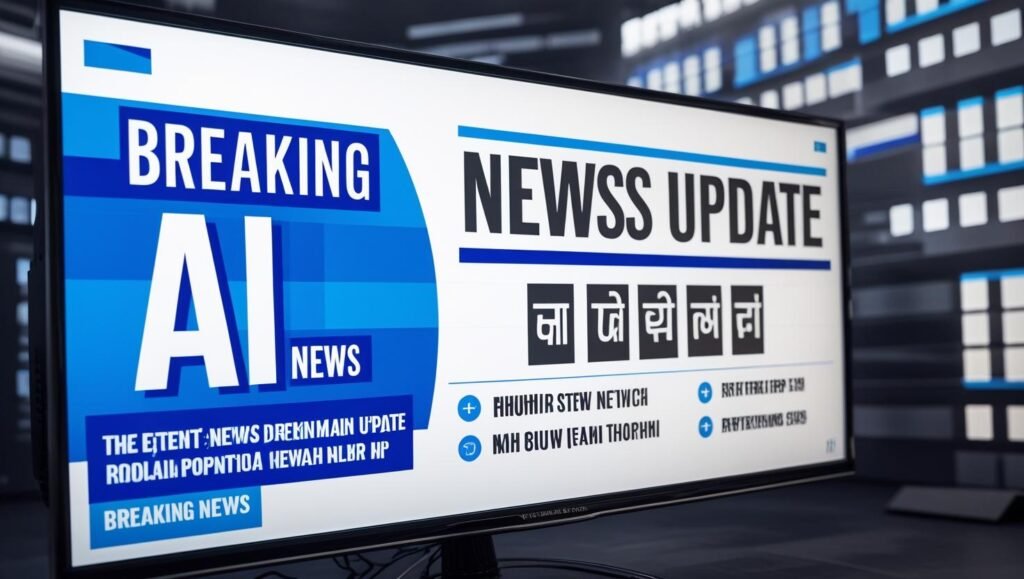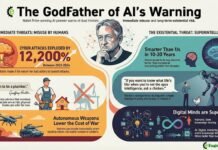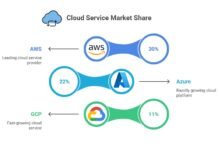Stay updated on the latest global AI trends of 2025 – from top CEOs’ adoption, environmental challenges, and government initiatives, to the rising threat of malicious AI and cutting-edge research breakthroughs. Discover expert analysis on EngineersCorner.in. Rapid change is occurring in the world of Artificial Intelligence, driven by pioneering companies. Microsoft has made significant strides with its Copilot AI assistant, which is integrated across products like Microsoft 365. This helps users with tasks like summarizing emails and drafting documents. Google is pushing boundaries with its Gemini large language models (LLMs) and the Duet AI assistant, enhancing data analysis and content creation for individuals and businesses. Companies such as OpenAI, with its popular chatbot ChatGPT, and Anthropic, with Claude, are shaping the conversational AI landscape. They offer innovative ways to interact with information and generate creative content. Giants like NVIDIA provide the crucial hardware and software infrastructure that powers many AI workloads, while IBM leverages its Watsonx platform for data management and AI model development. These companies and their products are transforming industries and influencing daily lives.
AI in the Everyday Lives of Leaders
It’s clear AI isn’t just for tech companies anymore; it’s becoming a go-to tool for top executives looking to boost their productivity. Leaders like Microsoft’s Satya Nadella and Google’s Eric Schmidt are already using AI for everyday tasks. Satya Nadella, for example, uses Copilot to summarize emails and prepare for meetings, while Eric Schmidt has discussed the strategic implications of AI and the need for government commissions to regulate it. Sam Altman relies on ChatGPT for personal tasks and Jensen Huang uses AI as a “daily tutor” through platforms like ChatGPT and Perplexity. Tim Cook and Zillow’s CEO also use AI tools to optimize their workdays.
Key takeaway: AI is integrated into the C-suite, and this suggests a broader trend in how businesses are using intelligent assistants to drive productivity.
AI’s Environmental Footprint and the Call for Green Computing
AI’s environmental impact cannot be ignored, despite its many benefits. An Accenture report warns that AI data center emissions could increase significantly by 2030, consuming as much water as small nations. “Green computing” strategies are gaining traction to address this. These strategies involve optimizing hardware, strategically planning data center locations, and using AI models efficiently.
The takeaway: Sustainable computing practices are essential to minimize AI’s environmental impact as AI expands.
Governments and Agencies Leveraging AI
Governments and agencies worldwide are actively exploring and implementing AI. The FDA uses its “INTACT” system to streamline risk review and public health workflows. However, Wikipedia editors are raising concerns about AI-generated content in articles, highlighting the importance of accuracy and reliable sources. Apple faces shareholder suits related to its AI progress, specifically with Siri and “Apple Intelligence”. Meanwhile, Mississippi schools are partnering with Nvidia to revamp their K-12 AI curriculum, indicating a focus on AI literacy from a young age. SoftBank’s interest in a trillion-dollar AI and robotics hub in Arizona points to bold ambitions in the hardware sector.
Takeaway: AI is impacting government, education, journalism, and hardware development, showcasing its broad societal influence and the importance of ethical deployment.
Addressing Malicious AI Uses and AI Security
With AI becoming more sophisticated, there’s a growing threat from malicious AI uses, like weaponized LLMs that automate phishing and malware attacks. This underscores the urgency of establishing strong AI security frameworks.
Takeaway: Malicious AI is a present reality, and organizations need to invest in robust threat detection, policy, and safety protocols to protect themselves.
AI Pushing Scientific and Academic Boundaries
AI is driving breakthroughs in scientific research and academia. MIT’s CSAIL shows how generative AI can be combined with physics models to improve robotic agility. A study on Explainable AI is shedding light on the “black box” of neural decisions, paving the way for more transparent systems. Japan’s ABCI 3.0 supercomputer is expected to accelerate generative AI research and development.
Takeaway: AI is pushing the frontiers of science and academia, with promising advancements in robotics, transparency, and computational power.
Recent AI News Developments
- India’s AI Landscape: India is actively working on its approach to AI regulation, focusing on fostering innovation while safeguarding data privacy. The Digital Personal Data Protection (DPDP) Act, 2023, aims to protect personal data while acknowledging the role of AI in processing it. Discussions continue about areas like accountability for automated decision-making and cross-border data transfer restrictions. The Ministry of Electronics and Information Technology (MeitY) is exploring ways to address misinformation and potential harms from deepfakes.
- EU AI Act Progress: The EU AI Act, the first comprehensive legal framework for AI, is progressing, with key provisions becoming applicable over the next few years. This includes rules for high-risk AI systems and general-purpose AI models.
- AI in Healthcare: AI is increasingly integrated into healthcare, from diagnostics and treatment planning to patient care and drug discovery. For example, AI is being used to analyze medical images more accurately, predict disease progression, and personalize treatment plans. However, challenges related to data privacy, ethical use, and integration into existing workflows still need to be addressed.
- AI in Business: AI is transforming various business functions, from customer support and marketing to cybersecurity and supply chain management. Companies are leveraging AI for hyper-personalization, intelligent automation, and predictive analytics to improve efficiency and decision-making.
- AI and Copyright: The use of copyrighted material for AI training is a major concern, with digital news publishers advocating for copyright protection in this context. Lawsuits related to AI and copyright infringement are also emerging.
- AI Liability: Discussions and regulations are emerging to address liability issues related to AI, particularly when AI systems cause harm or exhibit unexpected behaviors. The EU is proposing to revise its product liability regime to better handle claims involving AI.
- AI Misinformation: The proliferation of AI-generated misinformation and deepfakes is a growing concern, prompting the need for better detection methods and media literacy. AI itself is also being used to combat misinformation and enhance cybersecurity.
Ultimately, the focus is not solely on the technology, but on how it is integrated into lives and society. The breakthroughs discussed are exciting. Navigating the ethical and societal implications of AI requires thoughtful consideration and a commitment to responsible development. Fostering a collaborative approach among tech leaders, policymakers, and users can help harness AI’s potential for good while ensuring its benefits are shared equitably and its risks are managed effectively.
What surprised you the most, and how might it change your perspective ?










